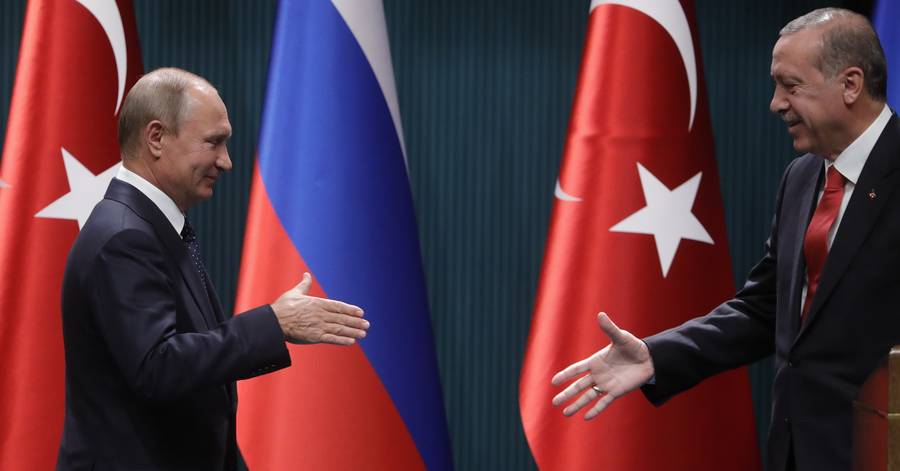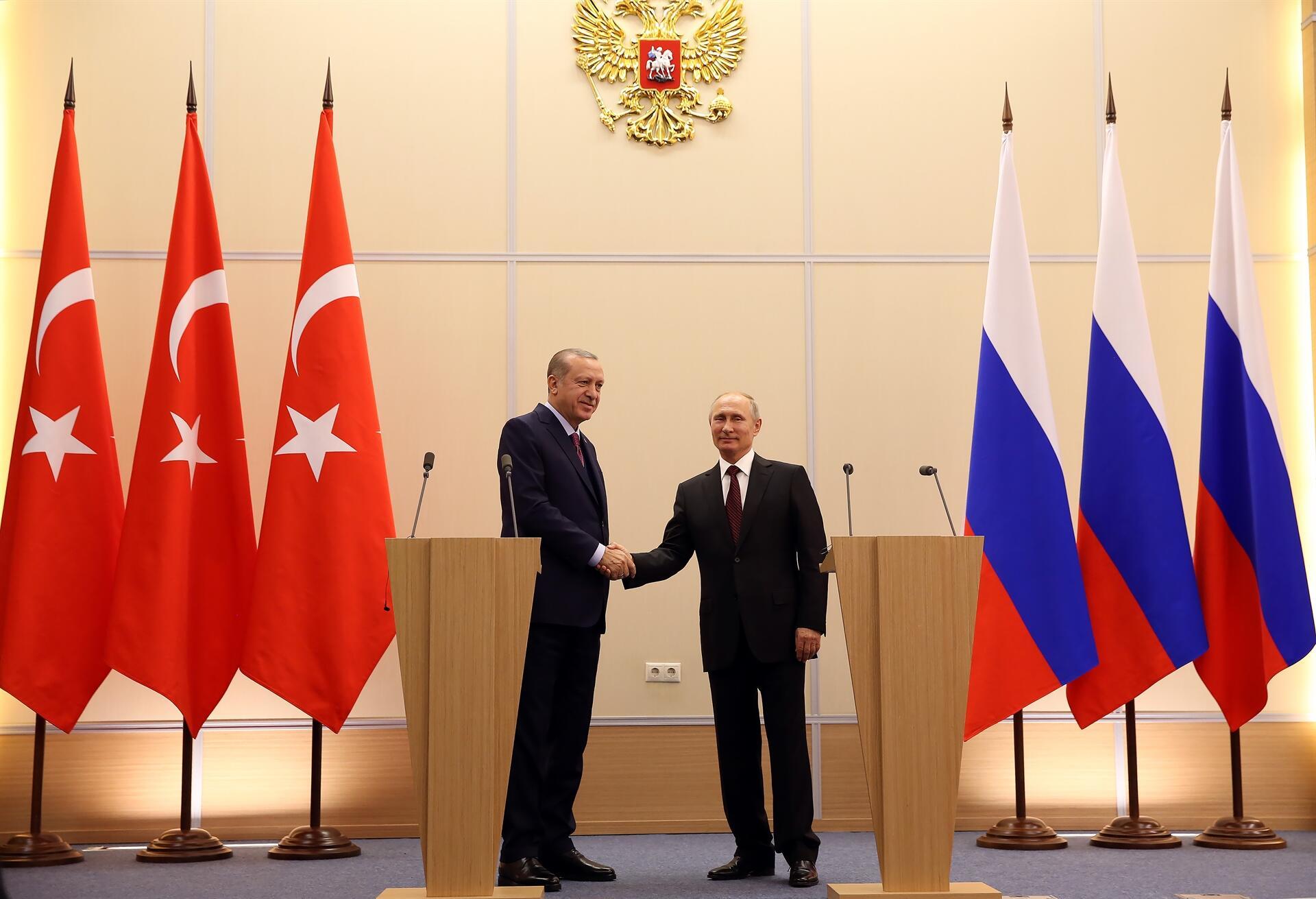By Katya Mavrelli,
In what could be characterized as a historical meeting, Turkey’s President, Recep Tayyip Erdoğan, and his Russian counterpart, Vladimir Putin, met in Sochi, Russia, to discuss politics and defense and make military deals that are increasingly alarming the West. Could this be the beginning of a new partnership, or are two leaders following the mantra “my enemy’s enemy is my friend”?
Analysts have termed this meeting a turning point, possibly one of the most historically significant international developments in the last weeks. Considering that this is the case simply because the ongoing power struggle in international relations has shifted the dynamics of partnerships would be naïve. The two leaders have long tried to address their differences in the field of foreign policy, but the crises in Ukraine and Syria have served as hurdles that have proven to be too hard to overcome. As the situation in Syria’s Idlib continues to unfold, and as Turkey positions itself more in favor of Ukraine, the alarming bells ringing off in the distance had the two leaders assessing the pros and cons of diplomatic negotiations or military confrontation.
The meeting came two days after Erdoğan boldly declared that the Turco-American relations were at their lowest point, and after Turkey’s rejection of the parliamentary elections held in Crimea, stating that the elections held in the region that Russia annexed in 2014 “had no legal validity for Turkey”. The latter is a matter of concern for the Russian government also, because Turkey has been setting the groundwork for the formation of a promising defense cooperation alliance with Ukraine for some time. Working closely on a “game-changing” military partnership, which involves the development of better drone warfare technologies, aerospace engineering, and more efficient missile technology, has alerted Russia. The “bear of the North” advised Ankara to inspect this possible partnership better, and “stop fueling Kyiv’s militaristic sentiment”.
One of the main reasons why Turkey is seeking to militaristically befriend Ukraine is Ankara’s desire to continue expanding its defense and military capabilities. In the last decades, Turkey has invested billions of dollars in systematic efforts to expand its share of global defense trade and secure its foothold in the military arena. Apart from their ties in the defense sector, Turkish companies are also considered to be the largest foreign contractors in Ukraine. Talks about the formation of a free trade agreement between the two are also already on the horizon.

This is why Russia cannot afford to turn a blind eye to this exponentially more friendly partnership between the two. As their ties become more solidified, so do Moscow’s concerns grow. Historically, Russia has been either a partner or an enemy in the minds of both Turkish and Ukrainian leaders, while Turkey and Ukraine have also been perceived as opportunities by Russian leaders. Yet, the possibility of Russia being replaced by Ukraine in the Turkish defense realm is what made Putin step up and remind the two of Russia’s presence.
Turkey and Russia have formulated long-standing ties in the fields of energy and defense, and their involvement in several conflicts in the Middle East, through proxies and mercenaries, have brought them closer together. The steady continuation of their diplomatic ties also serves as a solid barrier against any unpredictable American maneuverings aiming to fuel the East-West divide over international relations. Erdoğan often defines their ties as necessary for a regional power like Turkey and has ranked this relationship higher than Ankara’s ties with Washington.
As the two get closer in the field of defense, their foreign policy initiatives become questionably aligned. The two didn’t address growing international concerns regarding a possible new offensive by Syria and Russia against Turkish-backed rebels in Idlib after an 18-month truce. Nor did they talk about the deployment of Turkish soldiers and Syrian militants to support the Government of National Accord (GNA) in Libya, while Russia sent Wagner, a mercenary group, to back the opposition led by General Haftar. However, Putin simply disregarded any comments hinting that the two do not cooperate well, stating that “on the international arena [they] cooperate fairly successfully, and I mean in Syria and [their] coordinated position in Libya”.
The relationship between Turkey and Russia is, indeed, a tricky one. As with all international relations, delicacy is the key, and the avoidance of sudden maneuverings will help ensure its continuity. The growing Turkish interest in Ukraine, and the concerns that the US keeps bringing up, make Russia more willing to keep Turkey close. Erdoğan’s Turkey is –quite literally– the bridge that keeps the West and the East together, keeping the window of negotiations open, but fueling the divide even further. The harmonization of the two states’ foreign policies might be the key to the strengthening of the role of the wider Middle East, but also for the elimination of the power vacuum in the international arena.
References
- Turkey treads fine line on ties with Russia, arabnews, Available here
- Turkey to work with Russia, on space, submarines and warships, says Erdogan, middleeasteye, Available here
- Amid tensions with US, Erdogan praises ties with Russia, nytimes, Available here
- Partners or rivals? Russia and Turkey navigate awkward alliance, aljazeera, Available here




